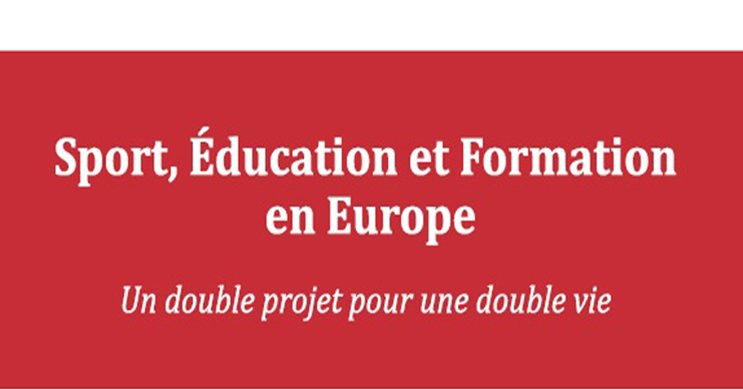Moreover, with the recent growing concern by key policy makers like UK Sport nationally and the European Commission at a European level, there was felt a need to look at elite athletes in a more “holistic” manner, that is to increase the awareness and appreciation of the other facets of an athlete’s life other than his/her sporting development. To this end, a number of research studies have been commissioned culminating in the publication of the “EU Guidelines on Dual Career of Athletes” in 2013. However, it remains to be seen to what extent these recommended policy actions will be implemented uniformly in each of the member states. There are some ethical considerations to keep in mind when it comes to elite athlete development. Pursuing success can at times compromise to a large degree other aspects of an athlete’s life with serious consequences later on in life if this is not achieved. Athletes exit the elite sporting system for a myriad of reasons whether as a cause of injury, de-selection, poor performances or a conscious decision to retire. Given that in most of these inevitable circumstances the athletes lack the control to influence the outcome of these decisions, it becomes even more imperative for them to have a contingency plan to facilitate the arduous transition out of sport and secure a fulfilling post-athletic career of their choice.
Becoming an elite athlete is seen by many as a prestigious form of employment and evokes images of grandeur as it allows certain individuals to construct their “glorified selves” and these identities are recognised by the rest of the public as such. However, the choice of this particular career comes at a price and the researchers in this field have striven to uncover the darker aspects of this desirable career. These negative elements concern issues of intense, and at times, ruthless competition to achieve selection, the disparity between supply and demand where the former markedly exceeds the latter which often lead to wasteful and unsustainable player–development practices in elite training institutions. Moreover, the instability and short-term cycle of an elite career hampered by the pervasive risk of injury and the inescapable vulnerability to ageing diminish the future career prospects of these athletes.
One of the main ethical concerns surrounding elite athletes within this context is that sometimes they remain ‘spectators to their own career development’ and therefore a more conscious effort is perhaps required by these individuals to take charge of their own career plans, whether they are within academia and/or elite sport. It has been argued elsewhere, that when student-athletes did take responsibility of managing their own career plans they had benefited from such a decision as they continued to progress further. This had implications not only for the way they manage their current dual career but also in the way they plan for their post-athletic careers. The literature highlights the importance for elite athletes to make serious plans in relation to a realistic post-athletic career opportunity while they are still active in sports in order to make a smooth transition into the labour market. The findings of another research study corroborated this fact and illustrated how each of the student-athlete interviewed (regardless of age, gender and nationality) had given careful consideration to his/her post-athletic career prospects as they discussed their realistic chances of securing the occupation of their choice in the near future. It is thus argued that the student-athlete should assume a greater responsibility for how both his/her careers are to be managed. By becoming more independent, self-reliant individuals they can develop expertise in deciding and negotiating arrangements for the progression of their dual career, which should in turn have a positive impact on their lifestyle more broadly. Such expertise can be potentially enhanced through the development of life skills and gaining work experience in other professional settings outside sport which will broaden their options once they are faced with retiring out of sport. Hence, by engaging in discussion about decisions that directly affect them, elite athletes may be able to negotiate more control not only over their current choice of lifestyle but also influence their post-athletic career direction. It is imperative that elite athletes are aware that they are the primary focus in the development of policies and service provision within this context, and they play a crucial role in how successfully they manage their dual career.
"Sport, Education and Training in Europe : A dual career for a dual life" Under the direction of Sylvain Landa Foreword of Thierry Braillard, Secretary of State for Sports and Claudia Bokel, Chairwoman of the Committee on the CIO Athletes
Think tank Sport and Citizenship, Mai. 2015 | www.sportetcitoyennete.com

Follow the comments: |
|
